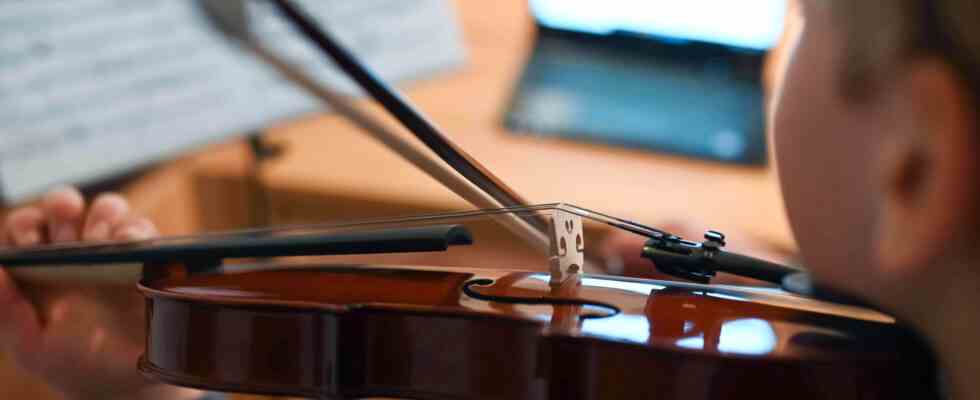Status: 27.11.2022 8:07 a.m
Correctly recognizing tones, clapping to the beat – some people are more musical than others. Researchers have now developed a method of using genes to find out whether someone has musical talent.
By Lena Schmidt and Ralf Kölbel, SWR
Child prodigies like Mozart, toddlers who can already clap to the beat and even animals that rock to the rhythm: does the secret of pronounced musicality lie in the genes? By analyzing certain genes, a good sense of tact can be predicted, at least in humans – this is indicated by the results of a current study with the participation of the Max Planck Institute for Empirical Aesthetics (MPIEA) there.
Developed indicator for sense of rhythm
The international research team developed an indicator that can be used to predict a person’s innate musicality. In order to determine this genetic factor for the sense of rhythm, the researchers examined genetic data from 5648 people.
The participants are twin pairs from Sweden. The fact that the subjects are identical twins was exciting for the researchers, since they are genetically almost identical and also grew up under the same conditions, writes Miriam Mosing, who also worked on the study.
Thousands of genes are decisive
It is not a single gene that is responsible for musical disposition, but many thousands, all of which have a tiny effect, explains behavioral geneticist Mosing. The researchers therefore speak of a polygenic score, the so-called PGSrhythm.
For the study, all subjects filled out questionnaires on musical topics and solved music-related tasks. It was measured how well they can distinguish rhythms, melodies and pitches. The results were then compared to the genetic data. “We found that the PGSrhythm was able to predict the general musicality of the participants,” said Laura Wesseldijk, first author of the study MPIEA press release.
Animals are musical too
Even animals seem to have innate musical abilities. The fact that they can also rock to the rhythm has already been observed in elephants and other animal species. One A study from Japan recently showed that rats also have an innate sense of tact – and that they are entirely similar rhythms react as humans.
Talent is not the same as ability
So musicality seems to be partly innate. But a talent alone does not make a good musician. “We cannot predict that a person will become musical one day,” explains Moses. But you can definitely tell from the genes whether a person has more or less musical talent compared to others. What that means for real life is another question, she explains in one Interview with the SWR.
So should only children be musically encouraged who have been born with a corresponding disposition? The research team would not recommend making decisions about music support and instruction based solely on a genetic score. According to Moses, a child can choose what is good for them. And: Music makes you happy and can calm you downas other studies show.
Musical parents produce musical children
The study also examines the extent to which genes interact with upbringing. There was an interaction: people who have a musical disposition were also more likely to grow up in an environment that promotes musicality.
This is because parents who also have this genetic predisposition and pass it on often create a suitable musical environment for their children, explains Moses. For example, children with a high genetic predisposition to musicality are also more likely to receive music lessons later in life.
Musicality has many aspects
With the indicator, not only the sense of rhythm could be correctly predicted, but also other aspects of musicality. This doesn’t just mean musical skills, but also, for example, the time people spend listening to music in general, explains Wesseldijk. Dancing skills are also included.
According to the researchers, the polygenic score could be used reliably in the future to further decode the genetic basis of individual differences in musicality.

